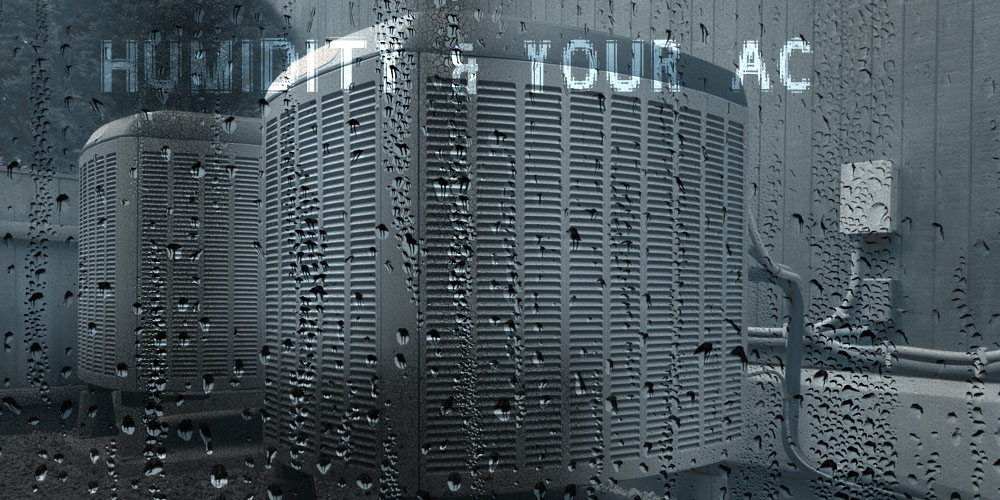
Humidity is the excess moisture that is in the air. When the humidity is too high, sweat from our bodies is not absorbed into the air, which leaves us feeling clammy and sticky. This makes the air feel warmer than it actually is. The ideal humidity level for maximum comfort is between 30 and 60 percent. Compare that with the average morning humidity level in Little Rock between the months of June and August, which is 90+ percent!
Your Air Conditioner and Humidity
Your HVAC unit doesn’t just cool you down on hot summer days — it also dehumidifies your indoor air. There are several reasons why it’s important to try to decrease the humidity level in your home. When air moisture levels are high indoors, it not only can leave us feeling uncomfortable, but it can also create an ideal environment for unwanted mold and mildew growth. If the moisture level in your home is not monitored, it could also severely increase the number of allergens that you are exposed to (pollen, for example, clings to moisture).
Humid air can negatively affect your air conditioner as well. Your unit’s HVAC coil works to reduce humidity levels by condensing water vapor into liquid and then draining the excess. When the humidity is too high and it feels warmer than it is, you may keep your AC running to try to combat the heat. However, your air conditioner can’t remove all the moisture from overly humid air, thus canceling out your AC’s cooling effect. Not to mention, making your air conditioner work harder for longer decreases its lifespan.
Signs of High Humidity in Home
A few common signs of high indoor humidity include:
- Moist, clammy air – if your skin feels moist and clammy, it indicates high humidity levels in the home
- Foggy windows – humidity is vaporized water, so if the air becomes bottled up in your home, the windows will fog up
- Musty odor – excessive humidity can cause dampness, which can result in an unpleasant musty odor
How To Reduce Indoor Humidity
To help you out, the team at BR McGinty has put together a few tips to help you lower humidity levels in your home and stay cool during the brutal summer months:
- When you cook on your stovetop, use lids on your pots and pans.
- Try drying your clothes outside on a line rather than in your dryer.
- If you don’t already have them, install and use fans to increase ventilation.
- Take both colder and shorter showers.
- Don’t over-water your plants. Temporarily move your plants outside as they naturally release moisture/vapor. A lot of people don’t realize that if you have a lot of plants it could significantly affect your home’s humidity levels.
- Keep your gutters and downspouts clean. Also, be sure to adjust your downspouts to ensure they are draining water as far away from your house as possible.
While all of these are smaller everyday things you can do, there is one more option that has a huge impact: a whole house dehumidifier.
What is a Whole House Dehumidifier?
A whole house dehumidifier connects to your central HVAC system and helps extract the moisture in the air in your entire home. Air that blows through your ductwork gets filtered by the whole home dehumidifier. The dehumidifier pulls moisture from the air, converts the humidity into condensation, and releases the cooled air.
This appliance can help:
- Lower humidity levels.
- Create a more comfortable environment.
- Prevent you from having any mold or mildew issues.
- Reduce the number of allergens in your home.
- Keep your air conditioner from being overworked.
- Extend the life of your AC unit.
Contact Us for a Whole House Dehumidifier
Want to learn more about whole home dehumidifiers? The Little Rock HVAC technicians at BR McGinty offer free consultations and estimates! Our team can answer all of your questions. Contact us today to increase the comfort in your home with a whole house dehumidifier.


